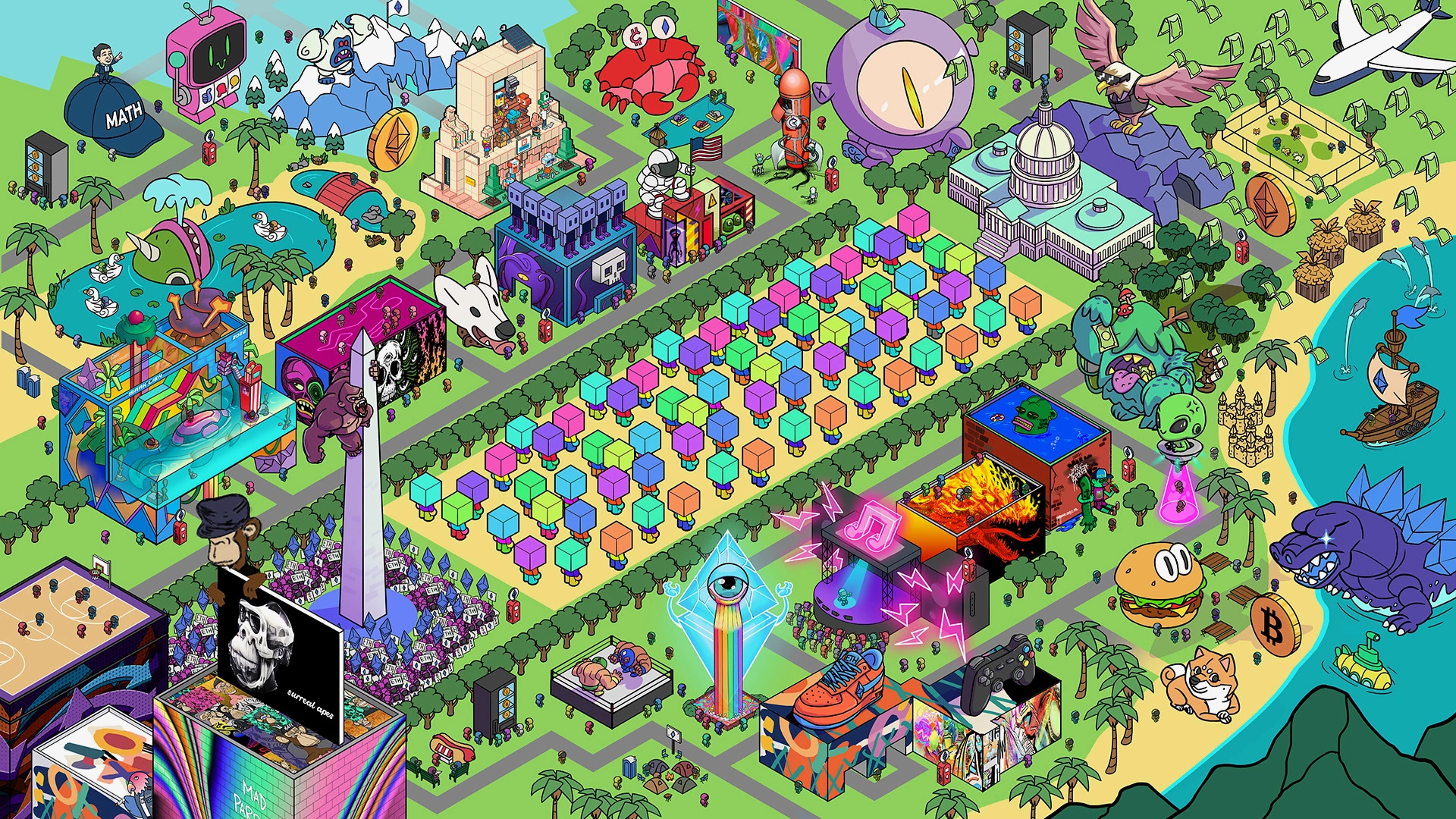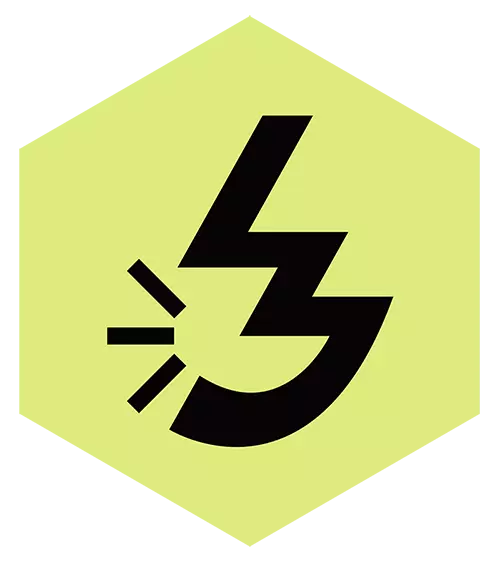You are using an out of date browser. It may not display this or other websites correctly.
You should upgrade or use an alternative browser.
You should upgrade or use an alternative browser.
COINBASE for Crypto has come
Pandiculate
Well-known member
Some great stuff in this post, along the lines of why I believe blockchain will continue to radically change much of how we think of value and IT utility.
Traditional infrastructure like power grids and social media platforms require a trusted intermediary to maintain and operate it—without it the infrastructure will degrade and/or stop operating altogether. These operators are organizations, either privately owned or state controlled—and require both profits, labor and/or subsidies to serve their purpose over time.
By nature of running on a blockchain, Hyperstructures can run forever with no ability to stop them. They can continuously function without a maintainer or operator, and they can run for as long as the underlying blockchain is running—which can be at the very least a decade. Hyperstructures are unstoppable, and this is a superpower that we have no good prior example of. You can have a one-time creation cost, and then once deployed it will run exactly as designed and without degredation. There is no further labor or capital required to sustain the Hyperstructure. If the core team or platform built on top of the hyperstructure were to disappear, it would still run exactly as designed and be fully operational for decades. Unstoppability is a net new capability that is possible because of blockchains, and is a capability that I believe changes the economic nature of infrastructure.
If we were to zoom out one level of abstraction we could call the blockchain the trusted trustless (yes you read that right) operator of the Hyperstructure.
I suppose I should just read the article but how is "There is no further labor or capital requred to sustain the Hyperstructure" true? There still needs to be nodes running and expending energy?
Or do they just mean no further labor and capital needed by whoever created it? But that's only true if other people are incentivised enough to run nodes.
EDIT: Yeah should have just read the article but he does caveat that point "It is worth stating while the Hyperstructure runs exactly at cost, someone still has to pay the gas cost to operate it at that point in time."
Last edited:
woops
is not like other people
2nd law of thermodynamicsI suppose I should just read the article but how is "There is no further labor or capital requred to sustain the Hyperstructure" true? There still needs to be nodes running and expending energy?
Or do they just mean no further labor and capital needed by whoever created it? But that's only true if other people are incentivised enough to run nodes.
EDIT: Yeah should have just read the article but he does caveat that point "It is worth stating while the Hyperstructure runs exactly at cost, someone still has to pay the gas cost to operate it at that point in time."
Pandiculate
Well-known member
It was an interesting read but christ, he's certainly all-in.The scale, importance and ambition of these pieces of infrastructure will eventually be marveled at in the same way we do museums, power grids, canals, dams and ancient roads. Hyperstructures will be at a scale we've never witnessed before, and can be more substantial than even the current social media platorms of today.
toko
Well-known member
never underestimate the power of collective mutual masterbation. think of this kind of work as the "theology" of crypto. not bad per se, but it has an agenda.It was an interesting read but christ, he's certainly all-in.
Clinamenic
Binary & Tweed
Definitely, and I can directly attest to how enduring the fuel of this zeal is.never underestimate the power of collective mutual masterbation. think of this kind of work as the "theology" of crypto. not bad per se, but it has an agenda.
Clinamenic
Binary & Tweed
But it is zealotry, to be sure.
Clinamenic
Binary & Tweed
Its an opportunity, that obviously won't be fully realized in its utopianism, to build a massive new digital swath of our world. I think its much more realistic to assume that this tech will have deep impacts across numerous sectors, than it is to assume that such impacts will be overwhelmingly positive.
Slothrop
Tight but Polite
That could be right around the corner. Theres a new social media platform, seemingly for developers at this stage, called Lens that is about turning almost every bit of data into an NFT. When you follow someone, you get an NFT representing which number follower you are of that person.
It may seem needlessly financialized, but think about how extractive these platforms already are. Its not like this stuff isn't already being monetized, its just being monetized by the platforms who sell the data to advertisers, rather than the users producing the content. Right now, all we users get for producing valuable content is a nominally free browsing experience.
But I don't see how the crypto angle helps here. I mean, we've been entirely capable of running a financialized social network for years, the reason that we haven't done it is because 99.9% of people are allergic to paying for anything on the internet if they can get something similar for free, not because we didn't have blockchains to keep track of it all. Again, once you stop getting distracted by the details of the tech, the big picture seems to be that all the blockchains and NFTs are just a way of keeping track of a system without centralized infrastructure, and you still have to make the inputs and outputs of the system add up the same way you would if it was all being run from a data center somewhere.
Last edited:
vimothy
yurp
I guess the idea of governance is interesting. can governance be automated or is it something that ultimately requires judgement as opposed to something that can be resolved by applying pre defined rules. my feeling is that politics cannot ever be automatedPeople generally have very different ideas of what constitutes dystopian vs non-dystopian. usually gets used as a rhetorical device to give their statements more oomph. regardless, ill try to answer ur question. i think the governance tools for smaller communities, stuff like multi-sig wallets, various voting mechanisms, transparency via blockchain, smart contracts, interoperability standards etc. these tools effectively automate a lot of the work that you would previously pay to lawyers, accountants. etc now of course i won't speak to what the small communities do, but it makes it easier/cheaper for smaller organizations to coordinate.i don't know if you call that utopian but i don't think that's dystopian
vimothy
yurp
similar here, there's an anology bw politics and power grids - but does it hold?Some great stuff in this post, along the lines of why I believe blockchain will continue to radically change much of how we think of value and IT utility.
Traditional infrastructure like power grids and social media platforms require a trusted intermediary to maintain and operate it—without it the infrastructure will degrade and/or stop operating altogether. These operators are organizations, either privately owned or state controlled—and require both profits, labor and/or subsidies to serve their purpose over time.
By nature of running on a blockchain, Hyperstructures can run forever with no ability to stop them. They can continuously function without a maintainer or operator, and they can run for as long as the underlying blockchain is running—which can be at the very least a decade. Hyperstructures are unstoppable, and this is a superpower that we have no good prior example of. You can have a one-time creation cost, and then once deployed it will run exactly as designed and without degredation. There is no further labor or capital required to sustain the Hyperstructure. If the core team or platform built on top of the hyperstructure were to disappear, it would still run exactly as designed and be fully operational for decades. Unstoppability is a net new capability that is possible because of blockchains, and is a capability that I believe changes the economic nature of infrastructure.
If we were to zoom out one level of abstraction we could call the blockchain the trusted trustless (yes you read that right) operator of the Hyperstructure.
Clinamenic
Binary & Tweed
A new lobbying DAO started by Andrew Yang's people

 www.lobby3.io
www.lobby3.io

Welcome to Lobby3
Lobby3 is a new community designed to give Web3 a stronger voice in Washington, DC — so we can build a more prosperous economic future together.
 www.lobby3.io
www.lobby3.io
Clinamenic
Binary & Tweed
I just joined the discord, stated my availability for a call next week. Gonna suggest my 3-tier DAO launch idea.
Clinamenic
Binary & Tweed
Not really, I'd say. Whats new here is that the things being compared to utilities (protocols) can run without centralized administration. CityCoins, a project I've mentioned a couple times here, is an example.similar here, there's an anology bw politics and power grids - but does it hold?
Clinamenic
Binary & Tweed
"Web3 could be the biggest anti-poverty initiative in the history of the world"
Andrew Yang
Andrew Yang
Clinamenic
Binary & Tweed
I just had Andrew Yang answer a question of mine in his DAO's first public AMA, and he said I sounded like an academic.
Clinamenic
Binary & Tweed
Also, I didn't anticipate people would have such difficulty pronouncing Clinamenic. Granted, it is a novel adjective form of a word nobody's ever heard.
Clinamenic
Binary & Tweed
There was an Australian fellow at TracerDAO who, oddly enough, pronounced it not only without stumbling but with an admirably regional flair.Also, I didn't anticipate people would have such difficulty pronouncing Clinamenic. Granted, it is a novel adjective form of a word nobody's ever heard.
Clinamenic
Binary & Tweed
Cly-nuh-meh-nick
